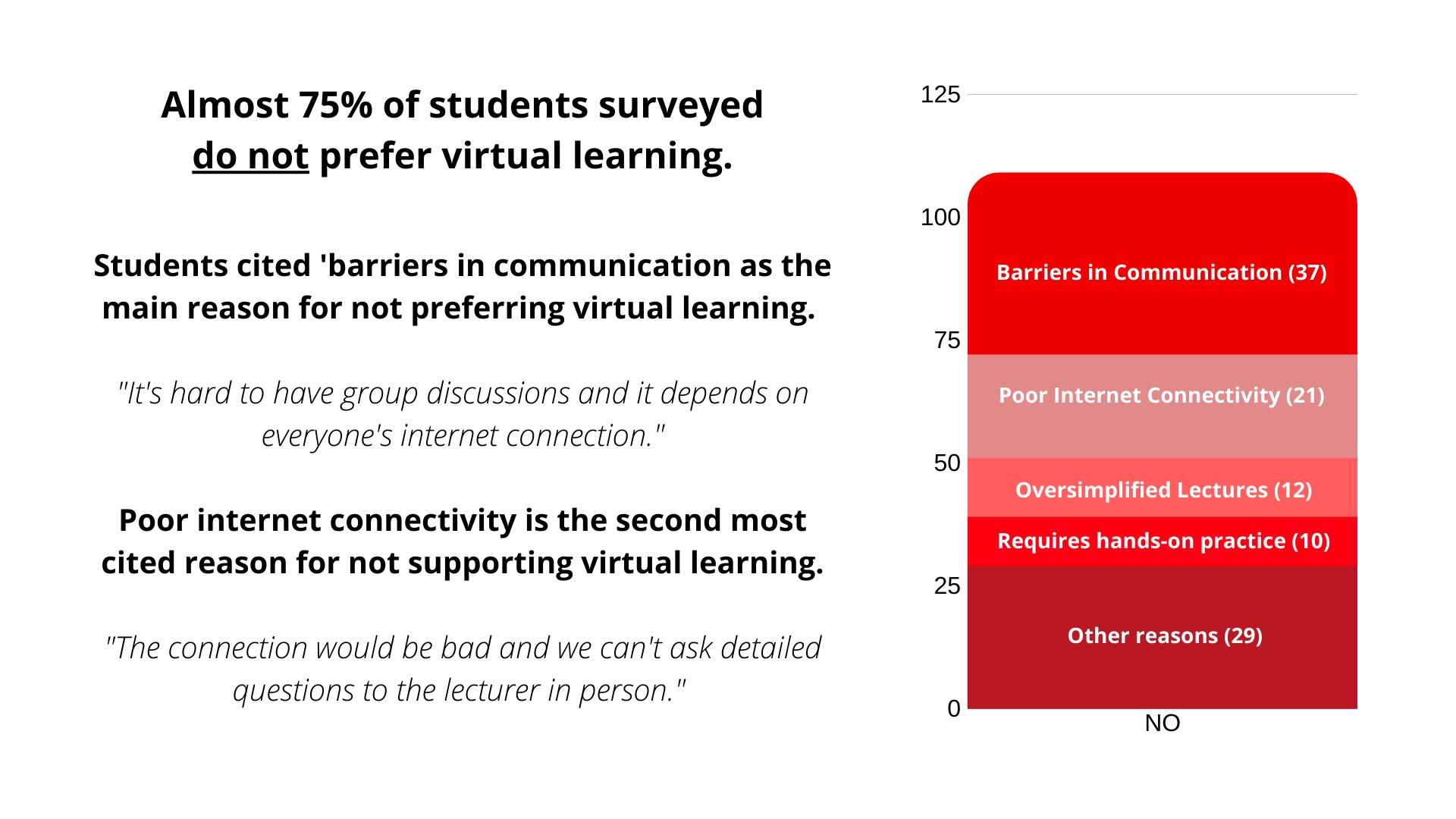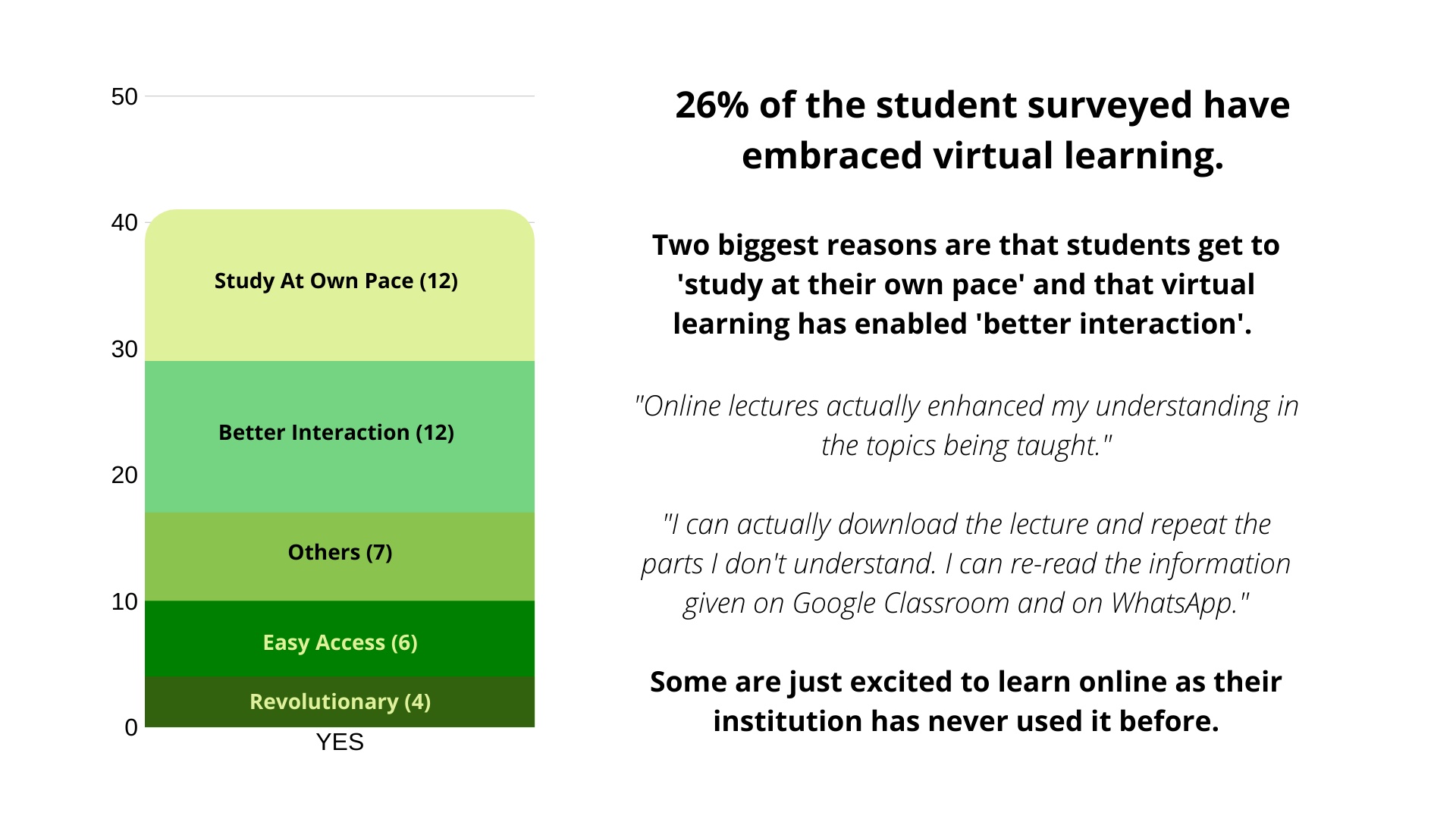All public and private universities in Malaysia has been ordered to close down since the Movement Control Order
(MCO) was announced on 18 March, 2020.
The COVID-19 pandemic has brought the entire world to a global slow-down. While many countries have implemented
restricted movement orders and stringent regulations for public routines, university students all over the world are faced with multiple challenges.
Last week, we did a quick survey of tertiary 164 level students studying all over Malaysia on COVID-19 and how it is impacting them. We looked at three main aspects – the effectiveness of virtual learning, access to campus facilities and health; both physical and mental.
Virtual Learning – The Future of Universities?
According to the survey, 91% of the students cited that their universities have implemented online learning throughout the Movement Control Order (MCO). However, only 1 out of 4 of the students surveyed said that they are better with online learning. Most of them cited having barriers in communication as a reason for not preferring online learning options. A respondent cited that ‘certain subjects need face- to face interaction where it’s easier to ask questions whenever stuck.’

In addition to that, students in rural areas seem to have a hard time due to poor internet connection, causing barriers in communication between lecturers and students. According to the survey results, many lecturers have opted to pre-record the lectures. As a result, there is no real-time interaction between lecturers and students. This could create a negative impact if these students are unable to communicate their progress and if lecturers are unable to follow up with their students.
However, some respondents have embraced virtual learning. The majority who prefer online learning options have
mentioned that learning online enables them to study at their own pace. Others have cited better interaction where a student claims that their lecturer has used attractive online teaching techniques in their virtual lectures while also following up students learning progress thoroughly.

Access to Campus Facilities – Should Fees Be Reduced During The Pandemic?
When asked if students are able to complete their tasks and/or assignments off-campus, 84% of our respondents said that they can complete most, if not all of their tasks and assignments without much access to campus facilities. However, some students mentioned that certain tasks require lab sessions and a more hands-on approach.

Consequently, 4 out 5 students agreed that fees should be reduced for semesters affected by COVID-19. Most of them
cited ‘not utilizing campus facilities’ as the number one reason to consider fee reduction. Others also mentioned having financial difficulties and semester disruption. However, some students disagree and stated that COVID19 is an unprecedented situation, therefore it is not necessary to reduce fees of COVID19 affected semesters. Others felt indifferent and have stated that even though physical classes are suspended, their syllabus is not affected. A number of students also cited that campuses need to be sustained and maintained.
Health – How Are University Students Feeling, Physically and Mentally?
Even with access to health necessities such as face masks and hand sanitizers, about half of the students surveyed have
expressed worry about their physical and mental health. The respondents were mostly worried about COVID19 in general and also about the effectiveness of online education. One student said that, ‘studying all alone and having difficulties connecting to the internet makes me stress every day.’ For those who said that they were not sure how they were feeling, a large majority of the students said that they felt anxious, depressed and felt loneliness. Having less options for physical activities was also concern for the respondents.

For those who have expressed little to no worries, the two biggest reason is that they are practicing the necessary precautions to curb the spread of the virus and also feeling supported by their family. Almost 70% of students that we surveyed have mentioned that they are staying at home with their families.
What’s Next?
Based on this survey, our respondents were clearly faced with challenges brought upon by this global pandemic. Though majority has voiced out their concerns and worries, there were some students who were hopeful of the future – despite the uncertainty, some were happy to be back with their families, some have learnt to embrace virtual classes and others understood that COVID19 is an unprecedented situation globally.
What will the tertiary education landscape look like post COVID19? Are students going to graduate on time? Will virtual learning be the answer? Perhaps it is time to reconsider how teaching and learning are conducted especially in an era of uncertainties.
Owl & Badger Research PLT is an independent research company based in Sarawak, Malaysian Borneo. To find out more about this topic, there will be an online sharing session with an academic on 30 April, 2020 from 8.30pm onwards. Registration is FREE and the online session is open to all.
To sign up, go to www.obresearch.co/covid19-ipt today!

